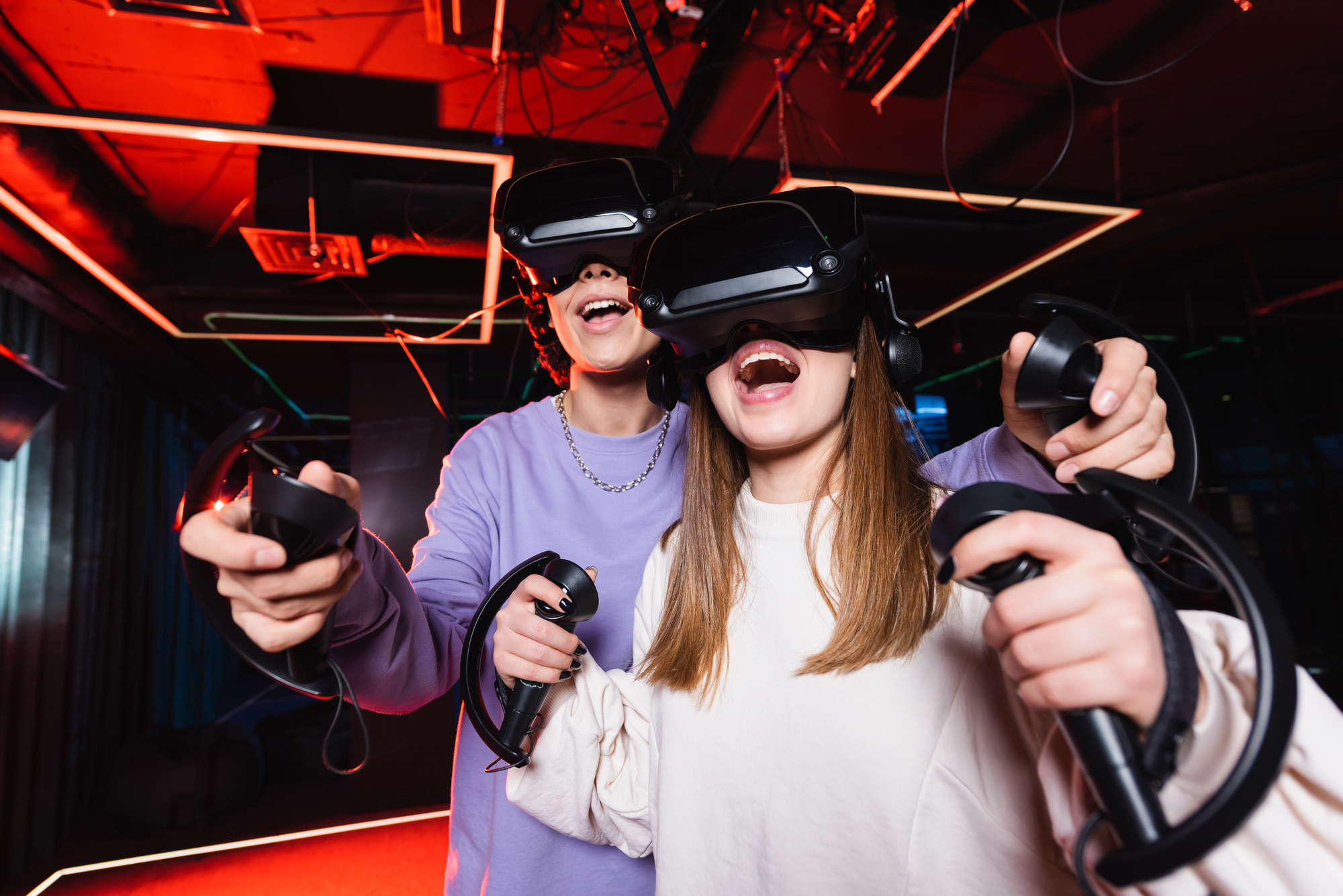Digital ownership in gaming has transformed how players interact with their favorite titles. Gone are the days when purchasing a game meant owning a physical cartridge or disc. Today, gamers increasingly buy and access their games through digital storefronts and subscription services.
Digital ownership allows gamers to build vast libraries of titles without physical storage constraints, but it also introduces new challenges. While digital games offer convenience and instant access, they rely on online servers and digital rights management systems to function. This dependence raises questions about long-term accessibility and preservation of games.
The concept of ownership in gaming continues to evolve. Some players express concerns about the potential loss of access to their digital game libraries if online services shut down. Others appreciate the flexibility of accessing their games across multiple devices. As the gaming industry moves further into the digital age, the nature of game ownership will likely remain a topic of discussion among players and developers alike.
Understanding Digital Ownership in Gaming
Digital ownership in gaming has transformed how players interact with and control their virtual assets. This shift impacts game purchases, in-game items, and player accounts across various platforms and services.
Evolution of Ownership in the Digital Age
The concept of ownership in gaming has changed dramatically with the rise of digital distribution. Players now frequently purchase games as licenses rather than physical copies. This shift allows instant access to games but often comes with limitations on resale and sharing.
Digital assets within games, such as character skins or virtual currency, have become increasingly valuable. These items exist solely in digital form, raising questions about true ownership and longevity.
Account-based ownership has emerged as a common model. Players’ purchases and progress are tied to their accounts on platforms like Steam, Origin, or PlayStation Network.
Licensing vs. Ownership
Digital game purchases typically involve acquiring a license to use the software rather than outright ownership. This arrangement gives publishers more control over how games are used and distributed.
License agreements often restrict players from reselling or transferring their games. This contrasts sharply with physical copies, which can be freely sold or shared.
Some digital stores, like GOG, offer DRM-free games that more closely resemble traditional ownership. These games can be downloaded and used without ongoing platform verification.
The Role of Digital Stores and Services
Digital storefronts like Steam, Epic Games Store, and console marketplaces serve as central hubs for game ownership. They manage licenses, updates, and user access to purchased content.
Cloud gaming services such as Google Stadia introduced a new ownership model where games are streamed rather than downloaded. This approach eliminates local storage needs but raises concerns about long-term access and service stability.
Digital stores often provide features like automatic updates, cloud saves, and social integration. These services add value but also create dependence on the platform for continued access to owned games.
Blockchain Technology and Gaming
Blockchain technology is transforming digital gaming by enabling true ownership of in-game assets and creating new economic models for players. This innovation brings increased transparency, security, and value to virtual items.
How Blockchain Supports Digital Ownership
Blockchain provides a decentralized ledger that records ownership of digital assets. This technology allows gamers to have verifiable proof of ownership for their in-game items. Players can buy, sell, and trade these assets freely, even outside of the game environment.
Blockchain’s transparency means all transactions are visible and traceable. This reduces fraud and increases trust in the gaming ecosystem. Players can see the history and rarity of items, adding depth to their value.
The technology also enables interoperability between games. Assets from one game could potentially be used in another, expanding their utility and worth.
Non-Fungible Tokens (NFTs) in Gaming
NFTs represent digital items as one-of-a-kind tokens on the blockchain. In gaming, NFTs can be used for characters, weapons, skins, or virtual land. Each NFT has a distinct identity and ownership record.
These tokens give players true ownership of their virtual items. Gamers can sell or trade their NFTs on open marketplaces, potentially profiting from rare or desirable assets.
NFTs also allow for limited edition items in games. Developers can create scarce digital assets, increasing their value and appeal to collectors.
Provenance, Scarcity, and Authenticity
Blockchain technology provides a clear history of ownership for digital assets. This provenance adds value to in-game items by verifying their origin and past owners.
Scarcity is easily implemented and verified through blockchain. Developers can limit the number of certain items, creating digital rarity that mirrors physical collectibles.
The immutable nature of blockchain records guarantees the authenticity of gaming assets. This prevents duplication or counterfeiting of valuable in-game items.
Blockchain’s ability to track provenance, enforce scarcity, and verify authenticity creates a new paradigm for valuing digital assets in gaming.
Economic Models and Monetization
Digital ownership in gaming has transformed economic models and monetization strategies. Game developers now explore new ways to generate revenue while providing value to players through virtual assets and in-game economies.
Trading In-Game Items and Assets
Trading virtual items has become a significant aspect of many games’ economies. Players can buy, sell, and exchange digital assets like skins, characters, and weapons. This creates a marketplace where rare or sought-after items can gain substantial real-world value.
Some games implement blockchain technology to facilitate secure and transparent trading. This allows players to truly own their digital possessions and transfer ownership as they see fit.
The trading ecosystem often extends beyond individual games, with third-party marketplaces emerging to support cross-game commerce.
Impact of Monetization on Gaming Experiences
Monetization strategies directly affect how players interact with games. Free-to-play models with in-game purchases have become widespread, allowing players to access games without upfront costs.
This approach can lead to concerns about “pay-to-win” scenarios, where spending money gives players significant advantages. Game designers must balance monetization with fair gameplay to maintain player satisfaction.
Subscription models offer an alternative, providing access to a game’s full content for a recurring fee. This can create a more level playing field but may limit the player base.
Monetization Through Virtual Assets
Virtual assets serve as a key monetization tool in modern games. Cosmetic items like skins and emotes are popular as they don’t affect gameplay balance.
Limited-edition or seasonal items can drive sales through scarcity and collectibility. Some games create entire economies around crafting and trading virtual goods.
NFTs (Non-Fungible Tokens) represent a new frontier in virtual asset monetization, allowing for verifiable ownership and potential appreciation in value over time.
Developers must carefully manage the release and pricing of virtual assets to maintain game economy health and player engagement.
Community and Legal Considerations
Digital ownership in gaming brings new opportunities for community building and legal challenges. These aspects shape how players interact with virtual assets and each other in digital spaces.
Building Community Through Shared Ownership
Digital assets create shared experiences among gamers. In-game items become conversation starters and status symbols. Players trade, showcase, and discuss their digital possessions on forums and social media.
Games like Roblox foster creativity by letting users create and sell virtual items. This user-generated content builds a sense of belonging and investment in the game world.
Some platforms enable players to vote on game updates using their owned assets. This gives the community a voice in shaping the virtual environment they inhabit.
Legal Frameworks Governing Digital Assets
The legal status of virtual items remains complex. Most games’ terms of service state that players don’t truly own in-game assets. Instead, they typically have a limited license to use them.
Courts are still determining how to handle disputes over digital goods. Some jurisdictions have started to recognize virtual property rights, while others haven’t addressed the issue.
Consumer protection laws may apply to in-game purchases. This could affect how companies handle server shutdowns or account bans that result in loss of access to paid content.
Future of Ownership in the Metaverse
The concept of the metaverse promises to expand digital ownership beyond individual games. Interoperable virtual worlds could allow assets to move between platforms.
Companies like The Sandbox are exploring blockchain technology to create verifiable ownership of digital items. This could give users more control over their virtual possessions.
As the metaverse develops, new legal questions will arise. These may include intellectual property rights for user-created content and jurisdiction in virtual spaces that span multiple countries.











